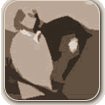| 2013-04-29 |
Poll Dorset sired lambs out of Perendale ewes have fared well on a Dorset marginal farm despite recent unpredictable summer weather.
Lambing begins on April 1 at Bulbarrow, near Sturminster Newton for the 500 Welsh Mules put to New Zealand Suffolk rams (Easyrams), 450 New Zealand Romney ewes put to New Zealand Romney or Cheviot rams to breed replacements and 250 Perendales - a New Zealand type of sheep which is a cross with the Romney and the North Country Cheviot.

Mike Miller
Mike Miller provides labour for the flock which he shares and runs with Langham Farms. The farm neighbours his own organic 300-acre holding where he runs a 50-cow Hereford-Angus suckler herd, finishing all the progeny.
Mike has been committed to the Dorset breed since he established his own pedigree flock 15 years ago but when he returned home to farm he decided the heavy clay ground was too wet to take advantage of the pure bred Dorset’s ability to lamb at any time of the year - particularly in the autumn to catch the early markets - and he sold the flock.
“I knew from experience that in New Zealand the Dorset is used with great success as a terminal sire on the Perendale, essentially a hill sheep and well suited to the ground at Bulbarrow which rises to 900ft and has steep banks,” said Mike, who runs the farm with one man and extra help during lambing time.
The sheep numbers have been gradually built up with the aim of breeding all the flock replacements. After spending a year in New Zealand after finishing college and visiting Scotland on a sheep study day with the SAC, Mike was convinced that crossing the North Country Cheviot with the New Zealand Romney would provide the easier care sheep he was looking for.
All the Perendale ewes are put to the Poll Dorset and Mike always uses performance figures to select his rams.
Among the four sires used this year is an Innovis Centurion Select Ram bought from Dorset Horn and Poll Dorset Sheep Breeder's Association chairman Robert Hole and his father, Richard’s Sherborne flock at Hill Street Farm, Holwell, Sherborne, Dorset.
“I try to buy rams with EBVs in the top 10 per cent with the focus on growth rates, eye muscle and ease of lambing. The Dorset rams are noticeably longer lived than other terminal sires, being used until they are four and five years old. They are also quiet and easy to handle,” said Mike.
Home bred rams and those from Jim Dufosee’s Blackhill flock at Warminster, Wiltshire, have also been used.
The farm’s core ground for grazing runs to 300 acres but the ewes have access to extra haylage aftermath land during the winter.
“The Dorset breed has made great improvements over the last decade. The ewes lamb easily to the Dorset. The lambs have vigour and a good covering of wool which helps when lambing them outside. We have no health issues with them and they are very strong lambs,” said Mike.
Despite the bad spring for lambing, the Dorset lambs averaged 1.4 lambs per ewe sold last season.
“All the sheep lamb at the same time and after last spring we noticed that the Perendales and Dorset cross lambs were coping better than any of the other sheep with the extremes of weather.
“We don’t push the lambs and getting over fat is not an issue which helps when we market the lambs throughout the winter. It is a low input system. We are selling at a 19kg carcase off grass grading at R3L or U, selling to Dunbia,” said Mike. “The lambs have good conformation and they are hardy.”
Lambs which have not finished off grass by the end of September are sold off turnips through to January and February.
Early in 2013, lambs were making up to 460p per kg. A Sainsbury’s contract during January and February was giving a guaranteed 380p per kg.

Perendale ewe and Dorset cross lambs
** The Dorset Horn and Poll Dorset Sheep Breeder's Association annual May Fair run by Kivells and Husseys at its Exeter Livestock Centre is the largest sale in the country of early lambing ewes.
This year’s show is on Tuesday May 7 followed by the sale on Wednesday May 8.
Last year’s sale met a virtual clearance and increased averages from a record entry, emphasising the demand for both breeders’ and commercial Dorset sheep.
A top price at 4,200gns, one of five rams topping 2,500gns and more, went to Northern Ireland breeders William and Karen Carson, achieving their Downkillybegs flock’s best price in 33 years.
 Article by Jennifer MacKenzie |
| Related Links | |
| Galloway Cattle Save on Inputs and Labour | |
| Closed Flock Controls Disease | |
| Good Management Reaps Rewards at Knockenjig | |
Stackyard News 
